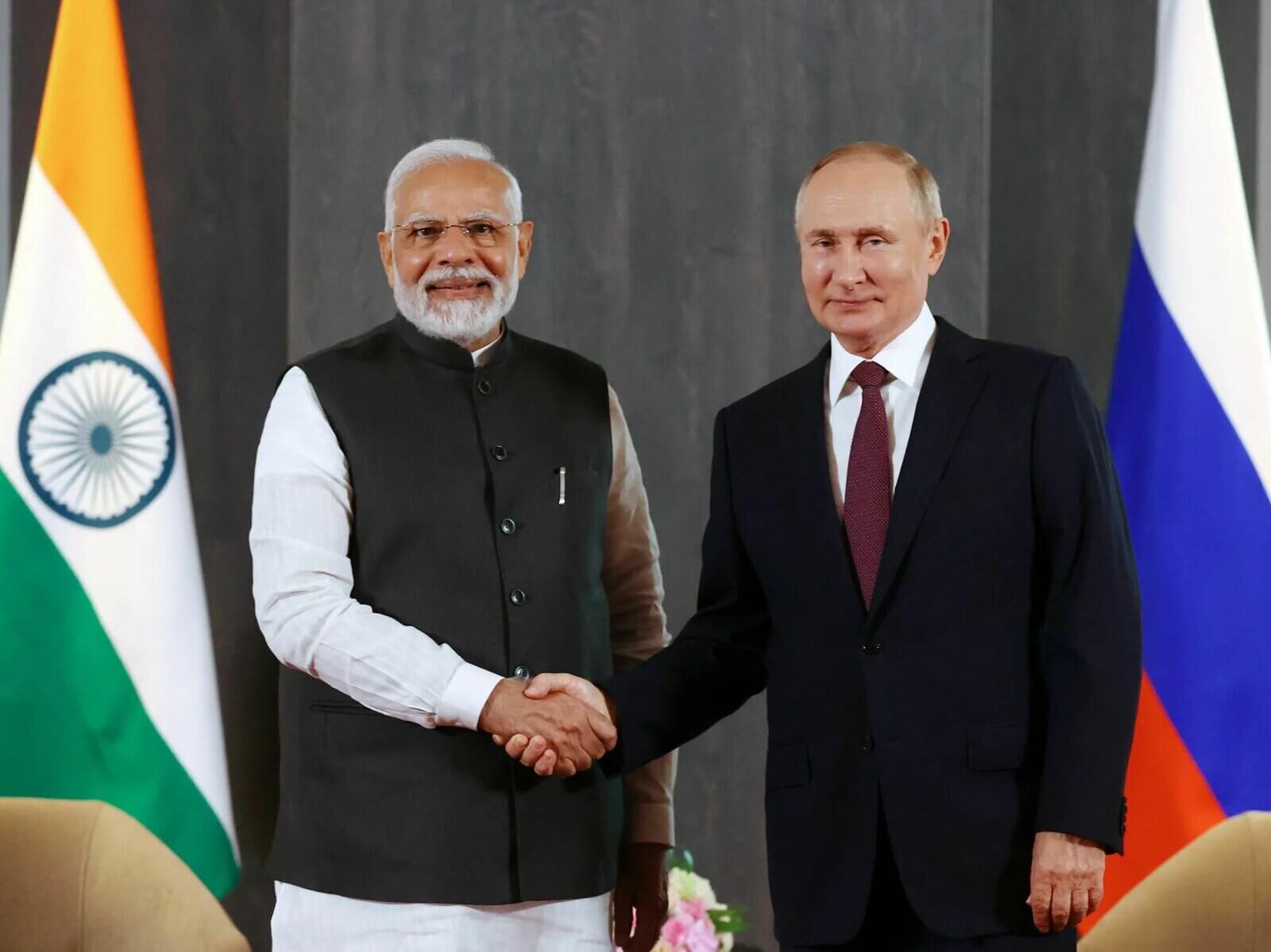The Kremlin is exerting pressure on states, including India, by threatening to upend energy and defence agreements unless they assist in thwarting plans to turn Russia into a financial pariah state due to its invasion of Ukraine.
Documents obtained by Bloomberg and statements from NATO officials familiar with the issue reveal how Russia is targeting economic partners ahead of a June meeting of the Financial Action Task Force (FATF).
Overview
The FATF, an intergovernmental organisation that establishes rules for countering dirty money, barred Russia from membership in February, and Ukraine is urging the organisation to impose additional constraints by adding Moscow to its “black list” or “grey list.”
If the proposal is implemented, member states, banks, investment firms, and payment-processing corporations would be required to do intensified due diligence and, in the most serious circumstances, take counter-measures to safeguard the international financial system.
Blacklisting by the FATF would place Putin’s government in the same company as North Korea, Iran, and Myanmar — the only nations with that status — and further isolate the Russian economy due to its invasion of Ukraine.
Bloomberg reports on pressure on India on five specific projects important to India, should it fail to “block moves” by countries to isolate Russia further. https://t.co/8oVT65MMDu
— The Wire (@thewire_in) May 23, 2023
According to the officials, earlier this month, a Russian state agency warned counterparts in India of a cascade of unpredictable and detrimental consequences for cooperation in defence, energy, and transportation if the FATF were to adopt new sanctions against Russia.
The agency reportedly asked India to “vocally” disapprove of any moves by Ukraine to add Russia to the “black list” of high-risk nations at the meeting, and warned that even being placed on the weaker “grey list” could lead to complications.
The FATF’s unprecedented suspension of Russia was described as politicised and illegitimate by the Russian agency in one document, which excluded any mention that it was in response to Putin’s invasion of Ukraine.
Russia asserted that India has “special credibility” inside the FATF. Further, Moscow was allegedly disappointed that New Delhi did not oppose its suspension from the organization.
Indian Projects Under Threat
Russia warned that additional sanctions could jeopardise several projects with India: beginning with the partnership of oil major Rosneft and Nayara Energy Limited, along with India’s imports of Russian weaponry and military hardware and technological cooperation in the defence industry.
Additionally, Russian proposals for new cooperative aviation projects, which were put forward in February at the Aero India 2023 expo, are at risk.
Sanctions on Russia may also threaten an important agreement on cargo transportation services between Russian Railways’ RZD Logistics and the Container Corporation of India relating to establishing a North-South commerce corridor.
While the US and its allies have already made Russia the most heavily sanctioned nation in the world due to the conflict, the Kremlin is working to mitigate the blow to its economy by strengthening connections with China, India, and other countries.
According to a 2021 IMF report, being grey-listed, which comes with stricter monitoring procedures, results in a “large and statistically significant reduction in capital inflows.” The FATF has 23 additional nations on its “grey list,” including Albania, Turkey, South Africa, and the UAE.
The Paris-based FATF stated that Moscow remained “accountable” for implementing the organisation’s criteria during its suspension and that the group would consider lifting or modifying the limits at every plenary meeting.
Ukraine applauded the suspension and stated that it would continue to push for Russia to be included on the blacklist. The Russian ambassador to the US described it as a dangerous step that might lead to the disintegration of the global framework for combating terrorist financing.
WATCH: PM #NarendraModi meets Ukrainian President Volodymyr #Zelensky in #Hiroshima, #Japan, on the sidelines of the #G7 summit and promises him that #India will do "everything" possible to help bring peace in #Ukraine. #Modi #Russia #UkraineWar pic.twitter.com/7wlmFxtQVN
— Statecraft (@statecraftdaily) May 22, 2023
India is one of several nations in the Global South, which has avoided explicitly condemning the Russian aggression in Ukraine.
However, Indian PM Narendra Modi and Ukrainian President Volodymyr Zelensky had their first in-person interaction, wherein Modi reaffirmed Indian support for the war-torn country, since the beginning of the war on the sidelines of the G7 summit in Japan.

